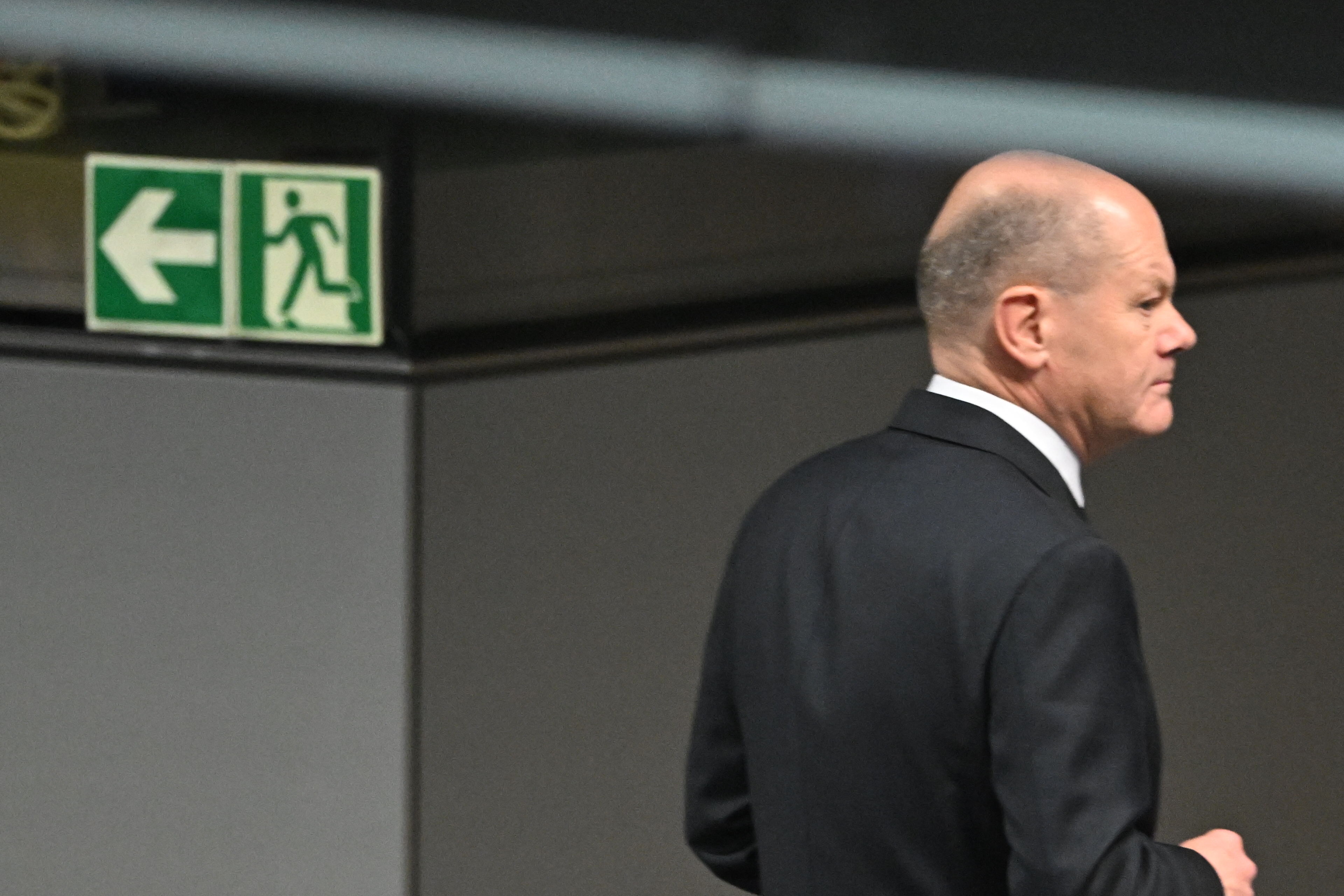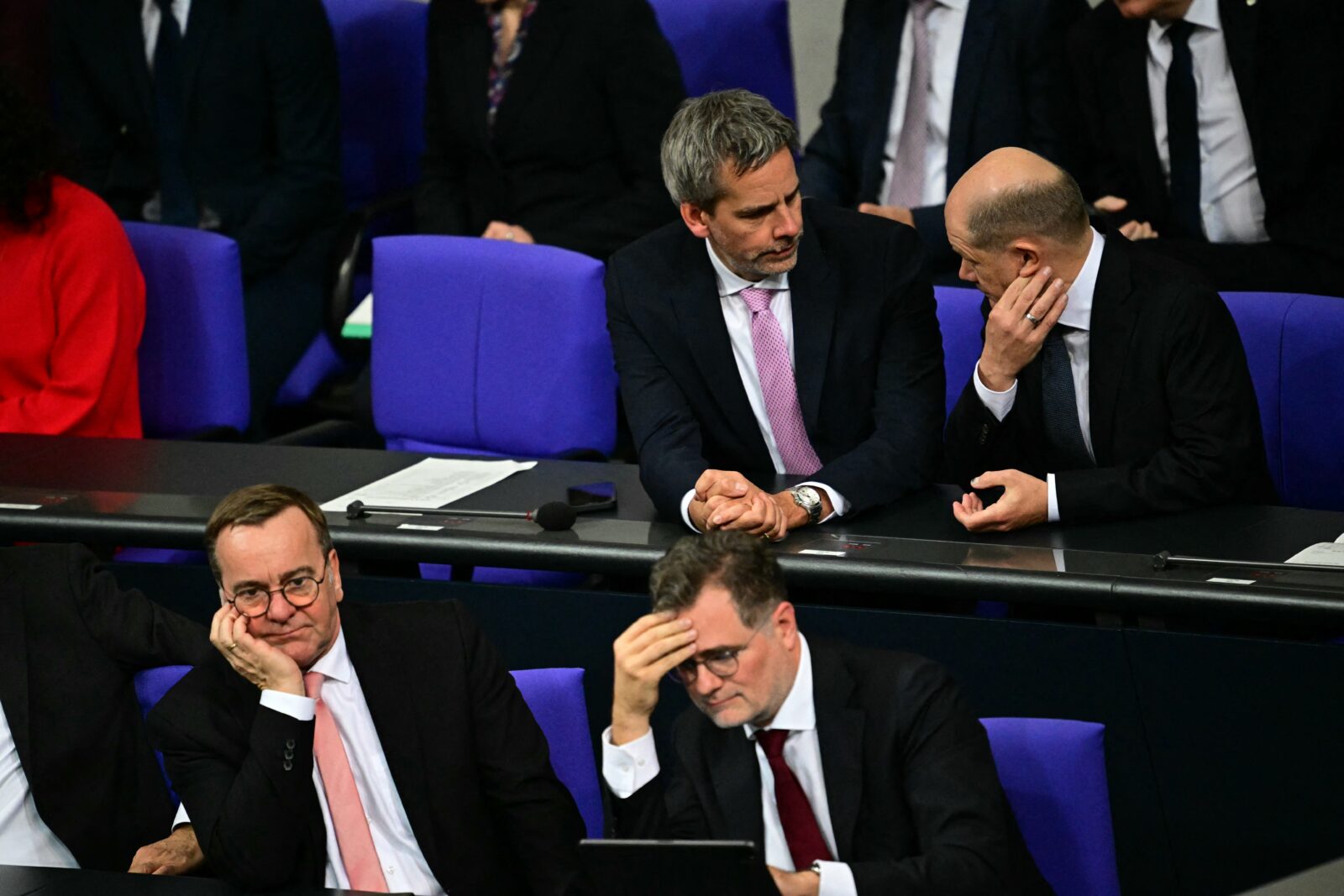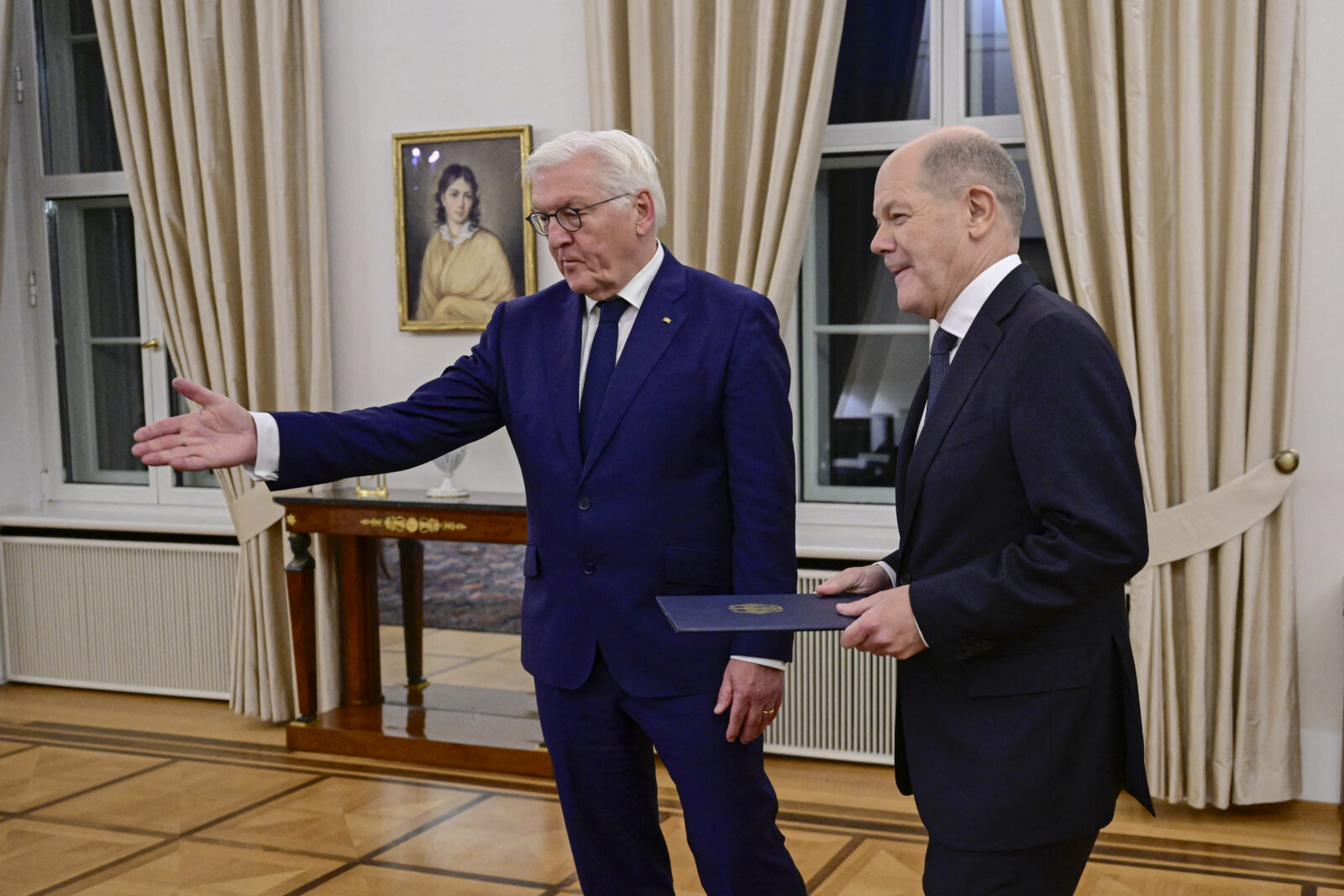
German Chancellor Olaf Scholz lost a confidence vote in the Bundestag on Monday, paving the way for an early general election on February 23.
Out of the deputies, 394 voted against Scholz, while 207 supported him, with 116 abstentions. Scholz's defeat was expected after the collapse of his three-way coalition last month.
The Bundestag vote, which Scholz had expected to lose, paves the way for President Frank-Walter Steinmeier to dissolve the legislature and formally order the election.
The vote followed a heated debate where political rivals exchanged sharp accusations, giving a preview of the upcoming election campaign.
Scholz, 66, lags far behind conservative opposition leader Friedrich Merz of the Christian Democratic Union (CDU), the party of former Chancellor Angela Merkel, in the polls.
The crisis deepened for Scholz, whose three-party coalition collapsed on November 6, the same day Donald Trump was re-elected as U.S. president. The turmoil has come at a time when Germany's economy is struggling due to high energy prices and stiff competition from China.

In addition to economic woes, Berlin faces significant geopolitical challenges, particularly its confrontations with Russia over the war in Ukraine and rising uncertainties around future NATO and trade relations, fueled by Trump’s looming return.
Scholz had outlined plans for substantial spending on security, business, and social welfare, but Merz questioned why these measures hadn’t been implemented earlier, asking, “Were you on another planet?”
Scholz defended his record, saying his government had significantly increased spending on the armed forces, which were left in a "deplorable state" by previous CDU-led governments. He stressed the urgency of investing in Germany, especially in light of Russia's ongoing war in Ukraine, describing it as "a highly armed nuclear power waging war in Europe just two hours' flight from here."
Merz, however, criticized Scholz for leading Germany into “one of the biggest economic crises of the postwar era.” He charged that Scholz had failed to act when given the chance and did not deserve the country's confidence.

Meanwhile, the confrontation reflected the breakdown of Scholz’s coalition, made up of his Social Democrats (SPD), the left-leaning Greens, and the liberal Free Democrats (FDP). The coalition’s infighting reached a peak on November 6, when Scholz fired his finance minister, Christian Lindner, who had been seen as a disruptive force.
Scholz again criticized Lindner for the “weeks-long sabotage” that led to the collapse of the coalition and damaged the “reputation of democracy.”
With the departure of the FDP, Scholz’s government has been limping along as a minority administration, struggling to pass major bills or a new budget.
The political landscape in Germany has shifted significantly in recent years, with the rise of the far-right Alternative for Germany (AfD), a party once seen as a fringe eurosceptic group but now a major political force with around 18 percent voter support. The AfD’s rise has further fragmented the political system, as the traditional dominance of the CDU-CSU and SPD has weakened.
Political scientist Claire Demesmay, based in Berlin, said the upcoming election comes at a time when “the German model is in crisis.” She noted that Germany’s prosperity had been built on cheap energy from Russia, security policies outsourced to the U.S., and strong export ties with China. The country is now undergoing a major reorientation, which is stirring fears within society and reflecting in the political discourse, she said.
“We can see a political discourse that is more tense than a few years ago. We have a Germany plagued by doubt,” Demesmay said.